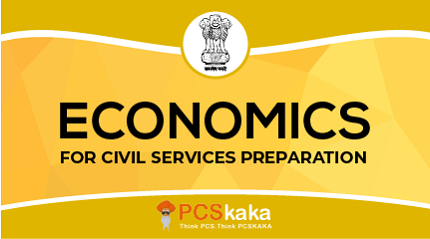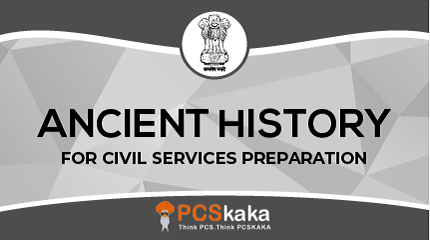

21. The Constitution of India was completed by
January 26, 1950
November 26, 1949
February 11, 1948
None of these
22. The Consumers’ Protection Act, 1886 of India does not provide for the right to:
Access to a variety of goods and services at competitive prices
Consumer education
Concessional rates for goods and services for weaker sections of the society
Protection against the marketing of goods and services which are hazardous to life and property
23. Bonded Labour System (Abolition) Act was enacted by Parliament in:
1971
1975
1979
1981
24. Which one of the following statements is correct?
The Constitution of India is Presidential.
India is a titular monarchy.
India is an aristocracy.
India is a Parliamentary democracy.
25. The first day of the session of the Indian Constituent Assembly was chaired by
Dr. Rajendra Prasad
Pandit Jawaharlal Nehru
Dr. B.R. Ambedkar
Dr. Sachchidanand Sinha
26. Which of the following is not included in the Directive Principles of State Policy?
Prohibition of liquor
Right to work
Equal wage for equal work
Right to information
27. Assertion (A): Indian Constitution is quasi-federal. Reason (R): Indian Constitution is neither federal nor unitary. Select the correct answer using the codes given below.
Both (A) and (R) are true and (R) is the correct explanation of (A).
Both (A) and (R) are true, but (R) is not the correct explanation of (A).
(A) is true, but (R) is false.
(A) is false, but (R) is true.
28. Which part of the Indian Constitution has been described as the ‘soul’ of the Constitution?
Fundamental Rights
Directive Principles of State Policy
The Preamble
Right to Constitutional Remedies
29. Consider the following statements about the Preamble of the Constitution and state which of them are correct with the help of the given codes: 1. The objective resolution proposed by Pt. Nehru ultimately became the Preamble. 2. It is not justiciable in nature. 3. It cannot be amended. 4. It cannot override the specific provisions of the Constitution. Codes:
Only 1 and 2
Only 1, 2 and 4
Only 1, 2 and 3
Only 2, 3 and 4
30. Given below are two statements: Assertion (A): Political parties are the life blood of democracy Reason (B): People generally curse political parties for poor governance. In the context of the above, which one of the following is correct?
Both (A) and (R) are true and (R) is the correct explanation of (A).
Both (A) and (R) are true, but (R) is not the correct explanation of (A).
(A) is true, but (R) is false.
(A) is false, but (R) is true.
31. The cardinal features of political system in India are 1. It is a democratic republic. 2. It has a parliamentary form of Government. 3. The Supreme power vests in the people of India. 4. It provides for a unified authority. Select the correct answer from the codes given below: Codes:
1 and 2
1, 2 and 3
2, 3 and 4
All the four
32. The Preamble of the Indian Constitution adopted on 26th November 1949 did not include the terms: 1. Socialist 2. Secular 3. Integrity 4. Republic Select the correct answer from the codes given below: Codes:
1, 2 and 3
2, 3 and 4
1, 2 and 4
3 and 4
33. Match List-I with List-II and select the correct answer using the codes given below the lists: List-I List-II A. Article 14 1. Amendment Procedure B. Article 36 2. Council of Ministers C. Article 74 3. Right to Equality D. Article 368 4. Directive Principles Codes: A B C D
2 1 4 3
4 1 3 2
1 2 3 4
3 4 2 1
34. The word ‘Secularism’ was inserted in the Preamble of the Indian Constitution by
25th Amendment
42nd Amendment
44th Amendment
52nd Amendment
35. The Constitutional advisor to the Constituent Assembly was
Sachidanand Sinha
K.M. Munshi
B.N. Rao
T.T. Krishnamachari
36. Who among the following were the members of the drafting committee of the Constitution?
N. Gopalaswami
Jawaharlal Nehru
Alladi Krishnaswami Ayyar
Sardar Patel
37. Which one of the following cases propounded of the concept of ‘Basic structure’ of the Indian Constitution?
Indra Sauhney Case
Shankari Parsad’s Case
Rudal Shah’s Case
None of the above
38. By which one of the following Acts was the Federal Court in India created?
Indian Council Act, 1861
Government of India Act, 1909
Government of India Act, 1919
None of the above
39. Study the following statements and select the correct answer from the codes given below: Assertion (A): India has a written Constitution. Reason (R): Growth of strong regional parties is an indicator of regional aspirations. Codes:
Both (A) and (R) are true and (R) is the correct explanation of (A).
Both (A) and (R) are true, but (R) is not the correct explanation of (A).
(A) is true, but (R) is false.
(A) is false, but (R) is true.
40. Which of the following is not a federal feature of the Indian Constitution?
Distribution of power between Centre and States
Entirely written Constitution
Single Citizenship
Independent Judiciary

12 Total Test
360 Total Question
Scientifically designed for PCS
A must have for Civil services aspirant
IAS PCS SCC and others

75 Total Test
2250 Total Question
Scientifically designed for PCS
A must have for Civil services aspirant
IAS PCS SCC and others

69 Total Test
2070 Total Question
Scientifically designed for PCS
A must have for Civil services aspirant
Timer for time management